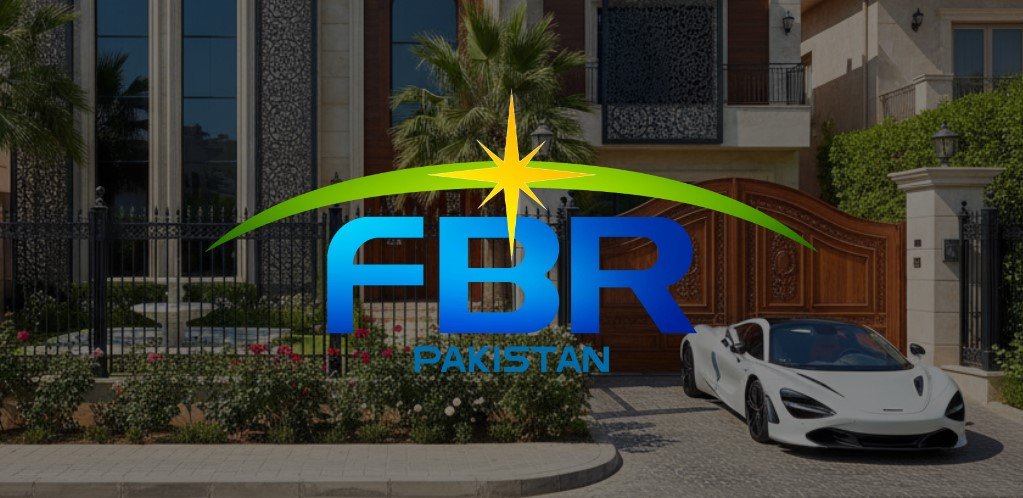A Crackdown on Influencers’ Flashy Lives
Pakistan’s Federal Board of Revenue (FBR) is turning its spotlight on social media stars, warning that their lavish lifestyles could land them in trouble for undeclared income. The FBR Social Media Income Tax initiative, announced on September 25, 2025, targets influencers, vloggers, and content creators whose luxury cars, designer clothes, and exotic vacations scream earnings they haven’t reported. The has sparked a wave of anxiety among the digital elite, with the tax authority vowing to use data analytics to track hidden wealth.
The FBR Social Media Income Tax story has blown up on social media, with creators sharing their fears and fans debating the fairness. Here’s the full story on the how it works, and what it means for Pakistan’s online stars.
What Sparked the FBR Social Media Income Tax Crackdown?
The FBR Social Media Income Tax push was revealed by FBR Chairman Rashid Mahmood Langrial during a September 25, 2025, briefing in Islamabad, where he said the board would use AI and data from platforms like Instagram and YouTube to identify undeclared income. The focuses on creators earning from ads, sponsorships, and affiliate links, with the FBR estimating Rs. 50 billion in untaxed digital income annually. Influencers with 100,000+ followers are prime targets, as their posts often showcase lifestyles that don’t match their tax filings.
READ NEXT: BCCI Complaint Farhan Haris Rauf BCCI files doping case
The FBR Social Media Income Tax builds on the 2022 Finance Act, which requires digital creators to register for income tax if earnings exceed Rs. 600,000 yearly. The FBR has already audited 500 influencers, recovering Rs. 2.5 billion in unpaid taxes. The initiative aims to close the gap, with creators facing audits, fines up to 100% of evaded tax, and potential jail time for non-compliance.
Why This Matters
The FBR Social Media Income Tax is a big deal for Pakistan’s booming digital economy, where over 5 million creators earn from content, but only 10% report income, per FBR estimates. The ensures fair taxation, with influencers like those on TikTok and YouTube contributing to the Rs. 8 trillion tax collection target for 2025-26. It levels the playing field, as salaried workers pay taxes while creators often evade them.
For creators, the FBR Social Media Income Tax means transparency, with many fearing audits will expose hidden earnings from brand deals. The also raises privacy concerns, as data from social platforms could be scrutinized. It’s a step toward a regulated digital space, making the a turning point for Pakistan’s influencers.
Public Reaction and Social Media Buzz
The FBR Social Media Income Tax news set X ablaze on September 25, 2025. Creators vented, with one posting, my luxury car’s a tax trap!” Another shared a meme of a vlogger hiding cash, captioning, “FBR’s coming!” Hashtags like #FBRSocialMediaIncomeTax trended, with tips on tax filing going viral. A user wrote, time to declare my earnings!”
Fans supported the move, with a post saying, “FBR Social Media Income Tax fair play for all!” Others worried, noting, creators will quit!” The buzz reflects the FBR Social Media Income Tax’s impact, sparking debates on fairness and privacy.
Challenges Amid the Initiative
The FBR Social Media Income Tax faces hurdles. Tracking digital earnings is tricky, as platforms like YouTube don’t share data with FBR. The relies on self-reporting, with creators underreporting to avoid taxes. Enforcement in a country with 70 million internet users is challenging, with the FBR needing more auditors.
The FBR Social Media Income Tax also risks stifling creativity, with small creators fearing audits will kill their passion. Privacy concerns loom, as data access could lead to misuse. Despite these obstacles, the aims to build a fair system, ensuring creators contribute to the economy.
A Glimmer of Fairness
The FBR Social Media Income Tax is a step toward equity. By taxing digital earnings, it funds public services, inspiring creators to report honestly. One X post captured it:pay your share, keep creating!” The encourages transparency, making it a symbol of justice.
The FBR Social Media Income Tax reminds creators that success comes with responsibility, fostering a balanced digital economy.
What’s Next for FBR Social Media Income Tax?
The FBR Social Media Income Tax will ramp up audits in 2026, with the FBR targeting 1,000 influencers. The could lead to partnerships with platforms for data sharing, streamlining compliance. Creators may form associations to advocate for fair taxes.
Fans are urged to support creators by encouraging honest reporting. The FBR Social Media Income Tax is a chance for a transparent digital space, promising growth for all. Stay tuned for updates on and its impact on Pakistan’s influencers.



